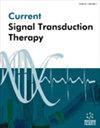Digitization of Prior Authorization in Healthcare Management using Machine Learning
Q3 Medicine
引用次数: 0
Abstract
Prior Authorization is the widely used process by Health Insurance companies in United States before they agree to cover prescribed medication under Medical Insurance. However traditional approach includes long length paper works, leading patients getting delayed in getting their claim processed. This delay may deteriorate patient’s medical condition. Also due to man made errors there is a chance of incorrect decision making process on the claims. On the other hand, physicians are losing their time in getting their prescribed medication approved. It is essential to reduce the wait time of patients and tedious work of physicians for healthcare to be effective. This demands advanced technology which can aid in boosting the decision making process of prior authorization methodology. The aim of this work is to digitize the prior authorization process by implementing classification algorithms which can classify the prior authorization applications into Accepted/Rejected/Partially Accepted classes. Proposed a web application which inputs prior authorization claim details and outputs the predicted class of the claim. Analyzed and collected significant features by implementing Feature selection. Developed classification models using Artificial Neural Networks, Random Forest. Implemented model validation techniques to evaluate classifiers performance. From the research findings Generic medication cost, type of Health insurance plan, Addictive nature and side effects of the prescribed drug, patient physical qualities like Age/Gender/Current Medical condition are the significant attributes that impact the decision making process in prior authorization process. Then implemented classifiers exhibited accurate performance on the Train and Test data. Amongst Artificial Neural Networks portrayed the more accuracy. Further analyzed confusion matrix for developed models. In addition to that performed k-fold cross validation and availed performance evaluation metrics to validate the model performance. Ameliorated Healthcare by removing time, location barriers in Prior Authorization process while ensuring patients get quality and economical medication. The proposed web application with machine learning predictive model as backend, automates the prior authorization process by classifying the applications in few seconds.利用机器学习实现医疗保健管理中预先授权的数字化
事先授权是美国健康保险公司在同意将处方药纳入医疗保险之前广泛使用的流程。然而,传统的方法包括长篇论文,导致患者延迟处理索赔。这种延误可能会使患者的病情恶化。此外,由于人为失误,索赔的决策过程可能不正确。另一方面,医生正在浪费时间来批准他们的处方药。减少患者的等待时间和医生的繁琐工作对于医疗保健的有效性至关重要。这就需要先进的技术来帮助推进事先授权方法的决策过程。这项工作的目的是通过实现分类算法来数字化先前授权过程,该算法可以将先前授权申请分类为接受/拒绝/部分接受类。提出了一个web应用程序,该应用程序输入预先授权的索赔详细信息并输出索赔的预测类别。通过实施特征选择来分析和收集重要特征。使用人工神经网络、随机森林开发了分类模型。实现了模型验证技术来评估分类器的性能。从研究结果来看,仿制药成本、健康保险计划类型、处方药的成瘾性和副作用、患者的身体素质(如年龄/性别/当前医疗状况)是影响事先授权过程中决策过程的重要因素。然后实现的分类器在训练和测试数据上表现出准确的性能。其中人工神经网络刻画的准确性更高。进一步分析了已开发模型的混淆矩阵。除此之外,还进行了k次交叉验证,并利用性能评估指标来验证模型性能。通过消除事先授权过程中的时间和地点障碍,改善医疗保健,同时确保患者获得优质和经济的药物。所提出的网络应用程序以机器学习预测模型为后端,通过在几秒钟内对应用程序进行分类,自动完成了先前的授权过程。
本文章由计算机程序翻译,如有差异,请以英文原文为准。
求助全文
约1分钟内获得全文
求助全文
来源期刊
CiteScore
1.70
自引率
0.00%
发文量
18
审稿时长
>12 weeks
期刊介绍:
In recent years a breakthrough has occurred in our understanding of the molecular pathomechanisms of human diseases whereby most of our diseases are related to intra and intercellular communication disorders. The concept of signal transduction therapy has got into the front line of modern drug research, and a multidisciplinary approach is being used to identify and treat signaling disorders.
The journal publishes timely in-depth reviews, research article and drug clinical trial studies in the field of signal transduction therapy. Thematic issues are also published to cover selected areas of signal transduction therapy. Coverage of the field includes genomics, proteomics, medicinal chemistry and the relevant diseases involved in signaling e.g. cancer, neurodegenerative and inflammatory diseases. Current Signal Transduction Therapy is an essential journal for all involved in drug design and discovery.

 求助内容:
求助内容: 应助结果提醒方式:
应助结果提醒方式:


